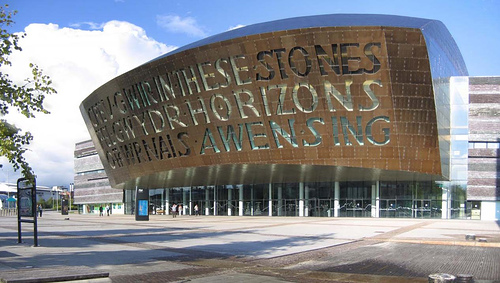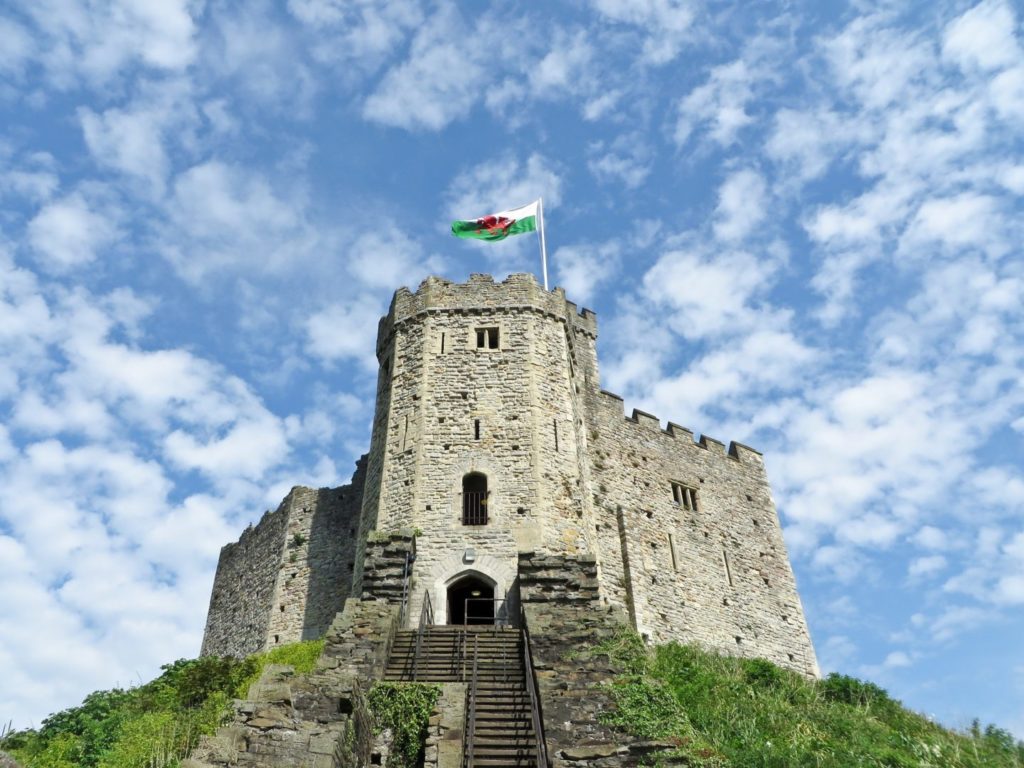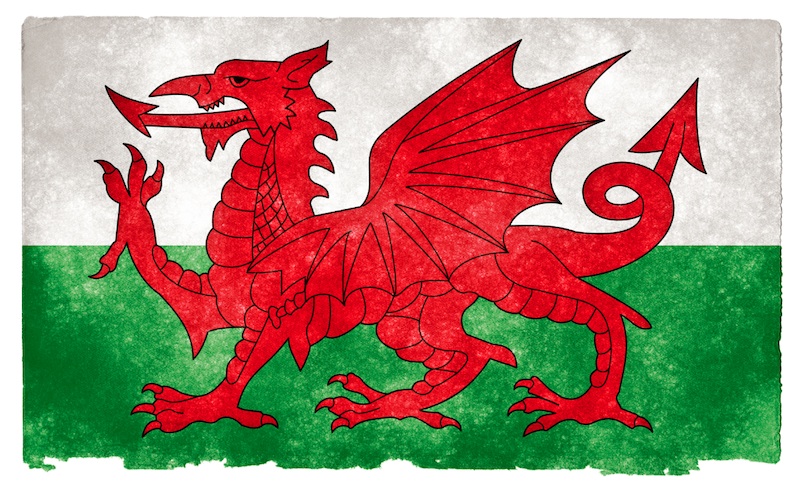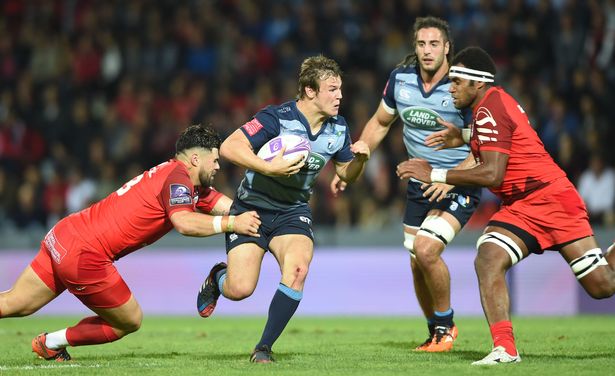Are you an International Student arriving in Wales for the first time this September? Here’s Sprout editor Andrew’s quick guide to the city!

Cardiff Bay
Formerly known as Tiger Bay, this area is pretty much the only reason Cardiff became a City (as the old song doesn’t go, “we built this city on docks and coal”). It’s an historic shipping port, which exported Welsh coal from the South Wales Valleys to the rest of the world, helping to power the Industrial Age. The coal mining industry helped fund the growth of Cardiff to become the capital city of Wales and helped make the owner, The 3rd Marquess of Bute, the richest man in the world at the time. However, while he and others benefitted, it was known as one of the most dangerous and crime-ridden places in Britain.
Migrant communities from up around 45 nationalities (including Norwegian, Somali, Yemeni, Spanish, Italian, Caribbean, and Irish) helped to create what is now considered the first truly multicultural areas in the world. As merchant seamen arrived in Cardiff from all over the world, only staying for as long as it took to discharge and reload their ships, Tiger Bay became the red-light district of Cardiff, and many murders and other crimes went unsolved and unpunished, as the perpetrators had sailed away!
(Read more about one of the most famous cases in our interview with Shreds podcast creator Ceri Jackson)
These days, this is a really nice, must-see area of the city. It’s the newest part of Cardiff, a waterside development that is home to loads of bars, restaurants and attractions. Here you’ll find the country’s political chambers, the Senedd (pronounced Sen-e-th), the Millennium Centre (Wales’ Opera House), as well as loads of bars and restaurants. It’s a nice place to be and not really that expensive, but probably one of the must-see parts of Cardiff. If you’re interested in seeing a show at The Millennium Centre, check out our reviews- we get a chance to review everything at the WMC. You can walk straight into the Senedd free of charge and watch a live debate (if one is taking place).
You should also check out the historic Coal Exchange building (now a hotel and bar called The Exchange). This is where companies would purchase their coal, before sending it around it around the world, and it was in this building that the world’s first £1 million cheque was signed! They do Welsh-themed cocktails in the bar area, and also serve great, if a little expensive, food.
If the weather is nice (unlikely!) you can walk across the Barrage. This takes around half an hour, and takes you from the Senedd/Millennium Centre (which are right next door to each other) across to Penarth. This £120 million construction, which essentially stops the tide – that’s right, the Welsh beat God! – is the reason that Cardiff Bay has been able to transform itself from post coal-era wasteland – which was basically smelly, silt mud – into the waterfront area it is today. There’s a famous film about an unlikely friendship between a young Tiger Bay girl and a Polish sailor, who get embroiled in witnessing a murder. Starring Hayley Mills, the film has a 93% Google Films rating (only 7.6 on Rotten Tomatoes, but what do they know!) and can be viewed for free on YouTube here.

Cardiff City Centre
I spent far too long just writing about the Bay, so will try go for bullet points to speed through this next bit:
● Visit Cardiff Castle – Originally built in the 10th Century by the Normans, the castle has a good history of being invaded and attacked. However, what you’ll find there these days is more like a 1920’s Gothic Grand Designs. I even got married there!
● Buy a Lovespoon – It’s not as rude as it sounds… A Lovespoon is a wooden spoon decoratively carved that was traditionally presented as a gift of romantic intent. It’s carved into various symbols, each of which has its own distinct meaning. You can buy them in The Welsh Shop opposite the Castle.
● Buy a Wales shirt – Official ones are probably a bit expensive, and may also be sold out, but you can buy generic red jerseys with a dragon/three feathers on for around £10-20. Again, pick one up from either the Welsh shop, or a nearby sports shop.
● Try Half a Dark – Wales most famous brewery, Brains, sells an ale called Dark. However the real reason to order a half a dark is that it’s a phrase which perfectly expresses the Cardiff accent, which often drops ‘h’ and elongates vowel sounds like ‘A’ (‘aarf a daaark, at Kaaardiff Aaarms Paaark)
● Visit the Principality Stadium – Formerly the Millennium Stadium (and still known as that by many people), it’s home to the Welsh rugby team and, on occasion, the football team. It’s slap-bang in the middle of the city centre, right by the castle. You should definitely try to get a photo standing outside the stadium. You can also have a paid tour of the stadium.
Gig Guide
A quick list of places you may catch a live performance.
- Moon – Usually free, this grungy club on Womanby St closed down a few years back but was saved by its employees. Sweaty, loud, cheap, always packed out and open late.
- Clwb Ifor Bach – the premier Cardiff music destination. Welsh-speaking staff, top-bill bands, and an unforgettable three-floors-and-cartoons Saturday night. Stop at the Moon first before heading in.
- Blue Honey Night Cafe – AKA Sully’s at daytime, just down the street from Clwb and Moon. They’ve opened bigger premises called Blue Honey Local in Roath now as well. Vegan food, star DJs, chess sometimes.
- Metro’s – A sweaty pit much loved by Cardiff locals.
- Retro’s – Not to be confused, but it has karaoke.
- Greyfriars Road – in general these are where you find your super-sized nightclubs. The only exception being Revolution AKA Rev’s which can be found near Clwb.
Theatres
Catch a play or two here.
- Wales Millennium Centre- as mentioned the WMC put on big musicals that are on tour round the UK or the world. We’ve seen shows including Billy Elliot, Wicked, Les Miserables and Joseph and the Amazing Technicolour Dreamcoat show up here. If you want to review one, get in touch.
- New Theatre – Actually quite an old theatre, this is where traditional stage shows are still performed, at the end of Greyfriars Road.
- Sherman – More contemporary affairs go on at this purple-themed bastion near Cardiff University. Has seen some amazing original work recently like Killology as well as adaptations like The Cherry Orchard and dance extravaganza MK ULTRA.
- The Gate / Llanover Hall- two smaller venues on opposite sides of town.
- Chapter- Known more for its cinema than its theatre, but recently it’s had stuff like Exodus and Robinson on.
- YMCA – Home of the Cardiff Players, a positively ancient but still youthful amateur troupe, as well as being, well, a YMCA.

Talk Like a Local
Cardiff Words and Phrases
● Tidy — a general term of approval. It covers a variety of meanings including tidy looking ‘nice-looking’, tidy sort ‘decent’, tidy job ‘job well done’ etc. although some claim it has no direct equivalent in standard English.
● Lush, Cracking — great, fabulous, attractive. ‘That was well lush’ or ‘That food was proper lush’
● Half — an emphatic particle, e.g. s/he’s half tidy, general approval expression; he don’t half kid herself, ‘he is pretentious/grandiose’
● Cwtch – (Pronounced ku-t-ch) This is a ‘Wenglish’ word. It’s not a real Welsh word, but it’s not used by people outside of Wales. It means to cuddle or feel cosy. You’ll see t-shirts saying things like ‘Anyone can cuddle, but only the Welsh can cwtch’.
Welsh Words and Phrases
● Bore Da (Boar-e-thaa) – Good morning
● Prynhawn Da (Prin-hown-thaa)- Good afternoon
● Shwmae (sh-my) – Hi
● Diolch (Dee-olch)- Thanks
● Sut wyt ti? (Sit oyt-tee) – How are you?
● Andrew ydw i (Andrew u-doo-ee) – I am Andrew

About The Rugby
Rugby is Wales’ national religion sport. If you’ve never seen a game of rugby, it can be a very confusing sport. There are a lot of complicated rules and it can be hard to follow. However, here are the absolute basics:
● 15 players on each side (7 subs)
● Play with an egg-shaped ball
● Player can carry the ball in any direction, kick it in any direction, but can only pass backwards
● It’s very much a contact sport, a little like American Football, but with a few exceptions – defenders can physically tackle the ball carrier, but cannot tackle players who do not have the ball. You cannot tackle players above shoulder height.
● There are 4 ways to score points:
○ A try – A try is worth 5 points. To score a try, the player must touch the ball over the try line are of the field.
○ A conversion – Once you score a try, a player attempts to kick the ball over the posts (A giant H) for an extra 2 points
○ A penalty – If one team breaks the rules, a penalty is given. The team can choose to kick at the posts (amongst other options). If they are successful, they are awarded 3 points.
○ A drop-goal – At any point in play, a player can attempt a drop goal. This is a difficult kick, as the player drops the ball to the ground, and then kicks it as it bounces. If it goes over the posts, they are awarded 3 point.
NEED MORE INFO ABOUT CARDIFF?
YOU’VE COME TO THE RIGHT PLACE!
THESPROUT.CO.UK




